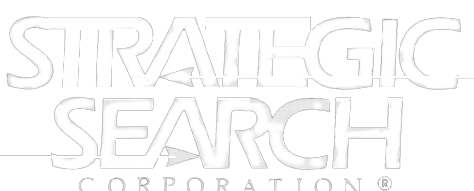All last week I covered the annual SES Chicago conference (Please go to http://www.searchenginestrategies.com/ for more details) for several media outlets including WGN Radio and ABC (WLS) Radio. This show provides the world’s top experts and most cutting-edge information on SEO (Search Engine Optimization) and SEM (Search Engine Marketing). These two fields demonstrate how to get ranked highly (i.e. noticed) by search engines and your customers, which in turn leads to increased profits.
As technical recruiter, I was most interested in learning and applying those techniques that would help employers better recruit key talent. The most important notion I learned was social media can be used to quickly and inexpensively increase your network of contacts, investigate candidates and uncover hidden talent.
The term social media is frequently used, but often misunderstood. To simplify, it is no more than an exchange of ideas among people. The advantage of this new, electronic, mass dialogue comes from applying social media sites such as Facebook, Twitter and LinkedIn to exponentially ramp up your Rolodex of viable talent and in turn increase your networking efficiency.
How well you harness social media depends upon your level of Internet sophistication. For those less savvy, I would recommend a 2-step process:
- Join and learn to use both LinkedIn (http://www.linkedin.com/) and Twitter (www.twitter.com).
- Once you feel comfortable, then apply such powerful applications as: a) Tweetdeck, which is also free. Please go to www.tweetdeck.com to sign up. Then use such features as: (1) “add column” and then (2) “search” and pick some categories to find information (e.g. “engineering jobs”) or b) Tweetbeep, which is also free. Please go to www.tweetbeep.com to sign up. It allows you to get notified about all new information about a given keyword (e.g. engineer).
For those more knowledgeable, I recommend becoming an expert in a narrow niche. Three inexpensive tools can help:
- Developing a blog. A lot of inexpensive software exists to help you (e.g. WordPress).
- Developing videos on You Tube.
- Starting a podcast.
There is a wealth of information to learn more about SEO (Search Engine Optimization) and SEM (Search Engine Marketing). Three sources I recommend are:
- Go to your local library and take out some books on SEO, SEM, how to start a blog and how to develop a podcast.
- Join SEMPO, which is the main trade association in the field. Go to www.sempo.org and join for $299 per year.
- Attend conferences like SES. Please go to http://www.searchenginestrategies.com/ for more details.
Other noteworthy information I learned:
- More than ever in our history, you have to be careful what you say or do (esp. online) because this information will last a long time!
- Search engines are giant libraries that accumulate and index information very quickly. This can be both beneficial (e.g. help you rank highly) and detrimental (e.g. if you have negative information, it will last longer and be easier to retrieve than ever before).
- The two key components to getting ranked highly are content (esp. good and relevant content) and link-building (modern derivation of networking)
- One of the new jobs created due to company’s appetite for getting their message out is Chief Content Officer (aka Content Editor & Chief).



